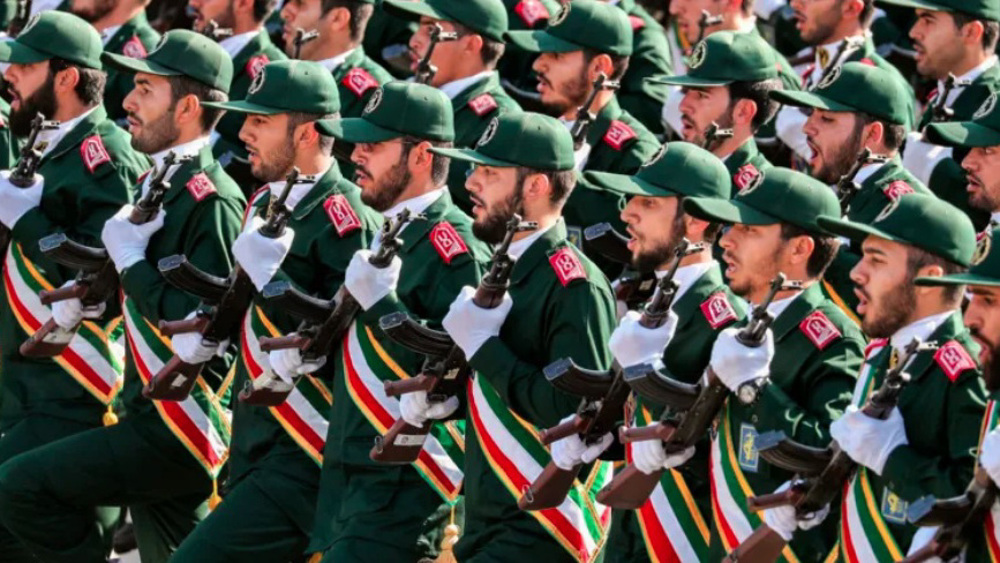Saudis after sectarian conflict in ME to cover domestic issues: Analyst
Press TV has conducted an interview with Dr. Naseer al-Omari, a political commentator from New York, to investigate the protests in Bahrain and Saudi Arabia against the execution of prominent Shia cleric Sheikh Nimr al-Nimr by the Saudi rulers.
The following is a rough transcription of the interview.
Press TV: What is your opinion of these rallies that we are seeing taking place specifically in Bahrain and the Eastern Province of Saudi Arabia? Is this going to be that spark that is going to ignite the region?
Al-Omari: Well, I definitely hope not but the decision by the Saudi royal family to execute Sheikh al-Nimr for speaking his mind and for expressing his dismay and anger at how his people, how the Shias as well as other Saudis are treated by the royal family is absolutely stunning. The Saudi royal family is trying to trigger a wider sectarian conflict in the region because they want to escape from the foreign policy failures in Yemen, in Syria and in other places. They are also trying to avoid facing up to the music internally in Saudi Arabia with the budget deficit, with sliding oil prices. So, what do you do? You escalate a sectarian war and you hope that will distract people from the reality of what this regime is doing.
Press TV: Does this have the potential of spiraling into a sectarian war or struggle because right now at least when you look at Bahrain, when you look at Kashmir even as the protests take place, it is not so much about Shias angering at Sunnis or vice versa. It is anger at what the Saudi regime is doing. What the execution of Shiekh al-Nimr stands for which is the execution of human rights, freedom of speech and expression.
Al-Omari: You are right. The execution has the potential to produce more sectarian strife and more sectarian conflicts because the situation is already very delicate in several countries in the region. So, you are right. I expect the Saudis to pour more weapons and more Jihadists into Syria and I expect the Iranians to respond to that escalation probably in Yemen. Wars have their own timetable and we hope that the international community would step in, the United States, Russia and try to put an end to this escalation but you never know and the international community is right to be concerned that escalation in the region is now more likely.
Press TV: As you mentioned Saudi Arabia wants a distraction from its own domestic issues by creating the situation that we are in it right now. However, can Saudi Arabia continue this indefinitely because let’s not forget all this also costs money, be it the war in Yemen or pumping more terrorists into Syria?
Al-Omari : Yes, the Saudi regime has lost its goals in Yemen, it has not achieved any goals in Syria and internally there is a lot of pressure on the Saudis to stabilize the country, to stabilize the region, and they are not achieving any of these goals. This regime has no true legitimacy within Saudi Arabia. Its legitimacy is based on sectarianism, is based on Wahhabism, based on Jihadism, but it really does not represent the average Saudis who now fear above a possible economic collapse, a regional war breaking out and reaching inside Saudi Arabia. So, it is very very dangerous and we all hope that things will come to a resolution of some kind.
We avenge the innocent until our last breath: Iran's parl. speaker
170 students, teachers martyred in ‘deliberate’ strikes on Iranian schools: Minister
Iran’s air defense systems down six advanced Hermes drones
US defenses overwhelmed by Iran’s drone and missile barrages: WSJ
IRGC says second US THAAD anti-missile unit destroyed
CNN journalists abducted by Israel while reporting on damage from Iranian strikes
Iran denies attacks on Oman as it warns of US-Israeli ‘false-flag’ ops
Iran knows where Netanyahu convenes his meetings: Ex-IRGC chief









 This makes it easy to access the Press TV website
This makes it easy to access the Press TV website